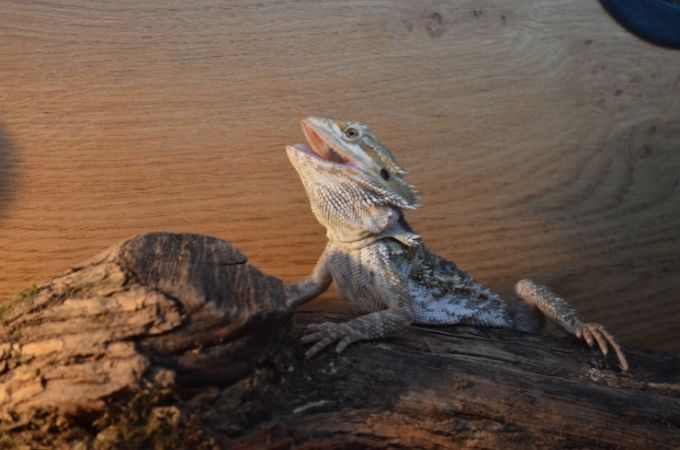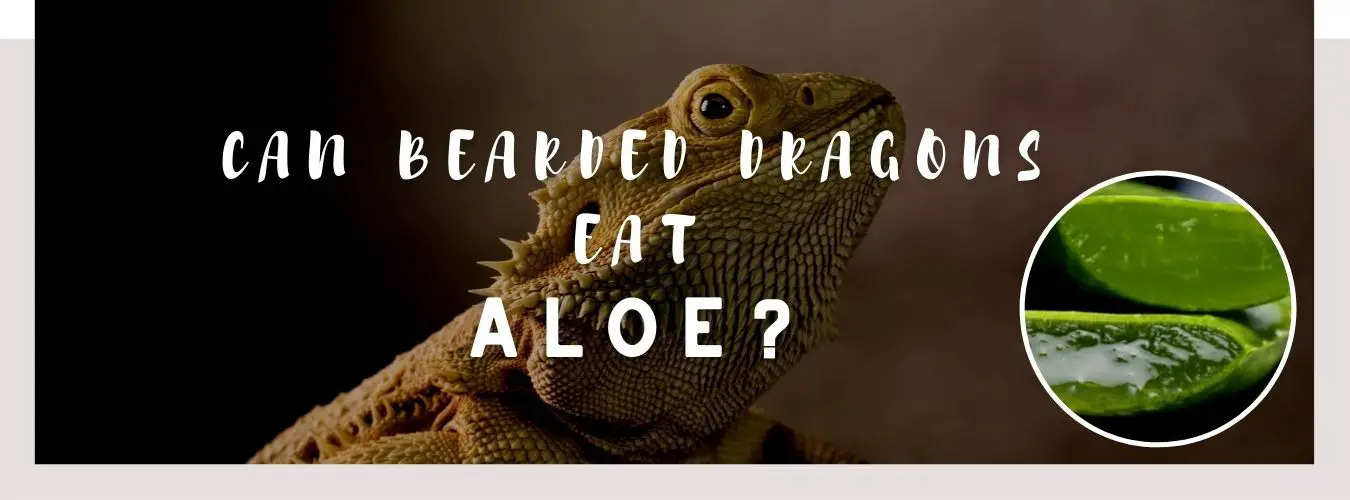
Aloe Vera – Toxic Or Non-Toxic.
Aloe vera has many uses, both imagined and real. But can it be part of your bearded dragon’s diet?
So, can bearded dragons eat Aloe vera?
The short answer is no. Bearded dragons cannot eat aloe vera.
Classification And Appearance Of Aloe
Wikipedia describe Aloe, or Aloe Vera, as an evergreen perennial plant. The word evergreen means it has healthy leaves year-round and is perennial, which means it has a life cycle longer than two years.
The Aloe plant has long, thick green leaves. When the leaves are cut open, they reveal a thick oil. This oil is one of the known qualities associated with Aloe Vera.
Nutritional Content In Aloe
Below is the nutritional profile of aloe vera per 240 grams
| Nutrient Name | Amount |
| Water | 230.9 g |
| Energy | 36 Kcal |
| Total sugars | 9 g |
| Calcium | 19 mg |
| Sodium | 19 mg |
| Vitamin C | 9.1 mg |
| Iron | 0.04 mg |
From the above table you can see aloe has low nutritional value.. Bearded dragons should not eat the aloe vera plant.
Rest Assured, Aloe is totally NOT toxic or dangerous to your bearded dragon.
You might also like: What Do Bears Eat?
The Risk When Bearded Dragons Eat Aloe

Bearded Dragons are not allowed to eat Aloe plants because they are bad for their health.
- The Laxative Effect
Aloe is not allowed in your beardie’s diet because it contains aloe vera latex. . When you cut the plant open, the latex is the yellowish liquid that can be seen. .
It is called the laxative effect because it affects your bearded dragon’s bowels. When your beardie consumes this latex, it can have side effects such as
- Allergic reactions
Many animals are allergic to aloe vera and its scent. Consuming aloe liquid can easily cause an allergic reaction.
- Internal Abdominal Irritation
The latex in the aloe plant is very toxic when swallowed, and can cause internal irritation.
- Dehydration
The latex is too strong for your bearded dragon and can lead to dehydration.
- Diarrhea
The most common outcome effect of ingesting latex is diarrhea. Your bearded dragon is not used to the ingredient, and its stomach repels it instantly. y.
Excessive amounts of Aloe can lead to your beardie getting severe nausea and a visit to the vet.
Are There Any Benefits Of Aloe To Your Bearded Dragon?
After viewing the risk factors, you might wonder if there are any advantages and benefits to feeding it to your pet.
Help With Shedding
Some bearded dragon owners believe Aloe Vera will ease the pain of shedding which occurs when bearded dragons do not shed all of their skin.
There is an unsubstantiated myth that the soothing and moisturizing qualities of Aloe Vera may help with shedding if applied to a bearded dragon’s skin. There is no evidence to support this theory.
Good Source Of Vitamin C
Aloe provides 9.1 mg of vitamin C per cup, which is crucial for bearded dragons’ growth and development.
Can Baby Bearded Dragons Eat Aloe?
No.
Baby bearded dragons need a steady, proven diet to maintain their healthy growth and development.
Consuming such a dangerous plant as Aloe can cause severe adverse reactions.
Again, do not feed aloe vera to your bearded dragons!
You might also like: What Do Squirrels Eat?
Aloe Vera As Decorative Plant

Aloe is not suitable for eating, but can it have other useful purposes? Some people would place Aloe plants in their bearded dragon enclosure as decoration but this is not a smart use of the plant.
Cutting this vigorous plant inside it can make the air suffocating.
Your bearded dragon will start feeling nauseous after a few hours of inhaling aloe vera.
Some bearded dragons will even bite the leaves of the aloe plant.
Soon after, your beardie will start experiencing side effects and will become very sick. eep this plant away from your bearded dragon’s cage.
Wrapping Up
Aloe Vera is not a good choice for your bearded dragon.
Instead, provide foods such as collard greens, dandelions, and sweet potato. Always remember to research any foods before introducing them to your bearded dragon. If you are still unsure, consult your vet.









